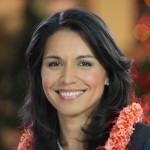Hawaii Lawmakers Looking to Boost Native Hawaiian Education
All four members of Hawaii’s congressional delegation are backing changes they say would strengthen the Native Hawaiian Education Act.
The act, which was originally enacted in 1988 and last reauthorized in 2002 as part of the No Child Left Behind Act, was designed to develop innovative educational programs for native Hawaiians.

US Rep. Colleen Hanabusa was among the members of Hawaii’s delegation supporting education legislation. Courtesy photo.
Proposed improvements include changes to the way members are appointed to the council that was established by the act, the Hawaii lawmakers said in a statement issued today.
The companion bills are designed to increase the NHEA’s transparency by appointing members to Native Hawaiian Education Council who are elected officials and well-known educators with at least five years of experience in native Hawaiian education.
Toward that goal, they would also require the council to hold annual meetings with the native Hawaiian community on each of the state’s six major islands and to submit a yearly report to the US Department of Education presenting the council’s recommendations.
Also, the legislation “aims to strengthen the council’s voice” by requiring an annual report from the DOE on the program’s funding and results.
“These changes will highlight the importance and effectiveness of the Native Hawaiian Education Act,” the statement said.
A 2008 study by the federal Government Accountability Office found that little was known about the NHEA’s impact on native Hawaiian education.
It said the act had not been evaluated by the Department of Education, and available academic research did not indicate how the NHEA was contributing to educational benchmarks such as improvements in preschool enrollment or high-school and college-graduation rates.
“By increasing the program’s transparency, bolstering accountability, and ensuring its effectiveness, we can continue to provide children on every island with culturally-relevant educational programs,” said Sen. Mazie Hirono.
“These important changes help strengthen the program to increase accountability so it remains viable in future years, while guaranteeing our state’s diverse counties all have a voice on the council,” said Rep. Colleen Hanabusa.
The amendments have been included in a package of education legislation introduced in the Senate this week.
The lawmakers said in keeping with their commitment to the welfare of Alaska Natives and native Hawaiians, Alaska Sens. Lisa Murkowski and Mark Begich, and Rep. Don Young also signed on as co-sponsors of the legislation.
The introduction of the measures follow this week’s inaugural roundtable hosted by the Council for Native Hawaiian Advancement and the Alaska Federation of Natives in Washington, DC.
The groups represent hundreds of Native Hawaiian and Alaska Native organizations, and the joint conference helped reaffirm the states’ continuing collaboration on behalf of indigenous peoples, the statement said.
















